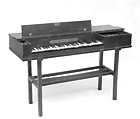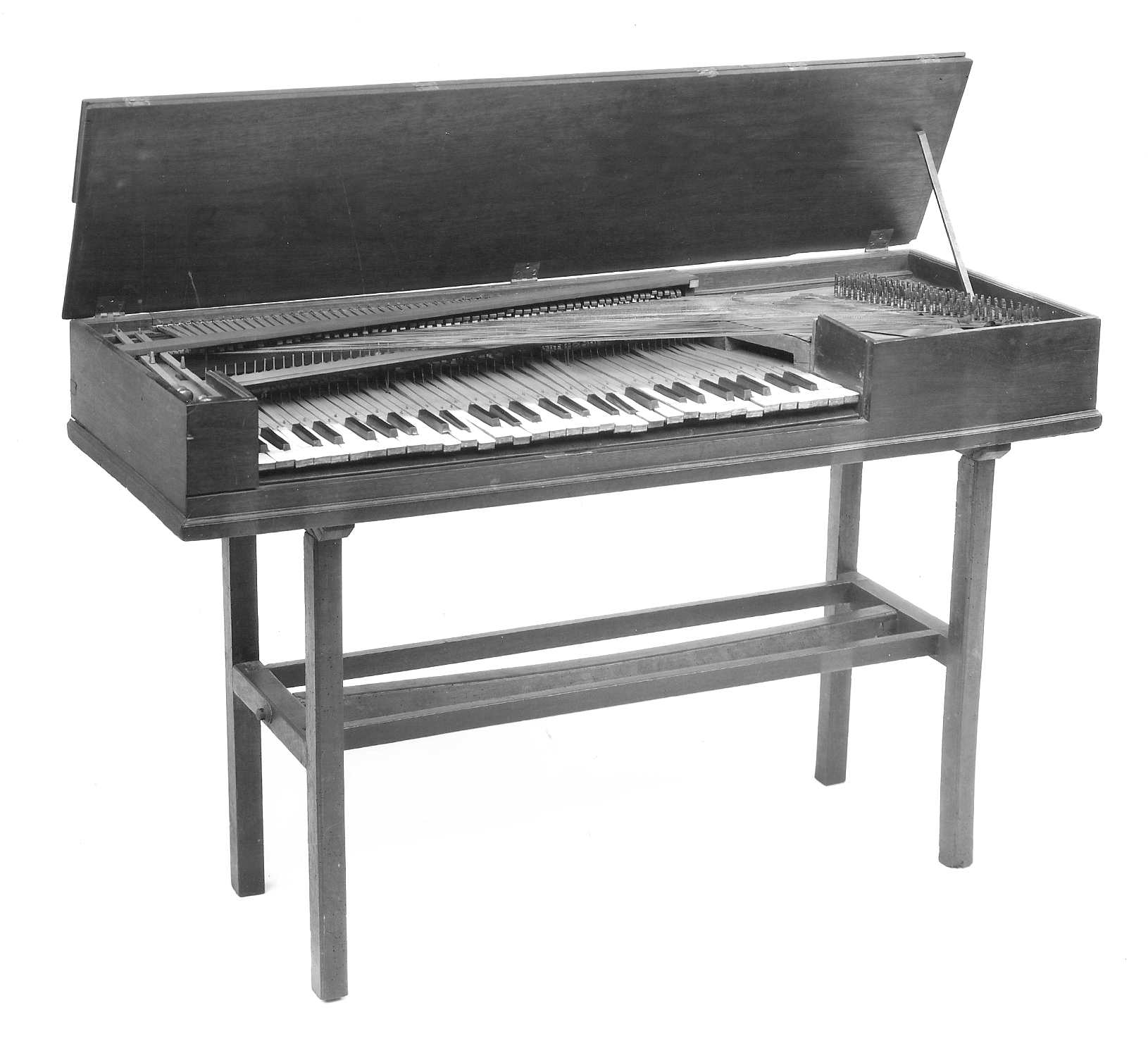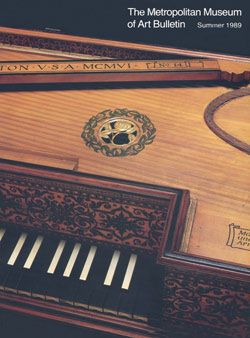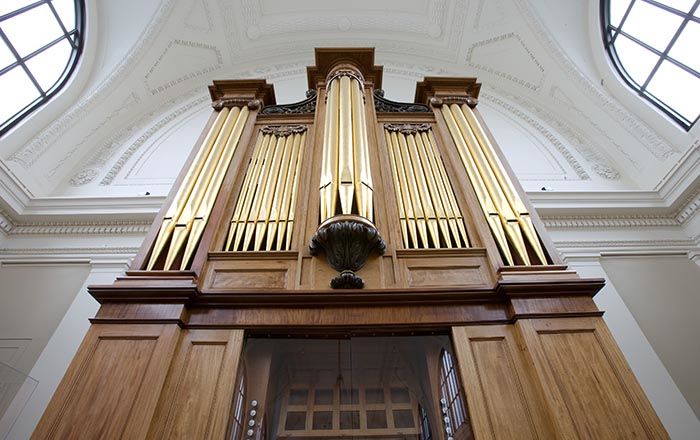Square Piano
Johannes Zumpe German, active England
Not on view
Zumpe was a pivotal piano maker who introduced a design for a small, rectangula piano that was affordable and appealed to members of the growing middle class. Zumpe's design is known as a square piano and he introduced it in 1766. Johann Christian Bach the Queen's music master, endorsed the instrument in 1768. The growing popularity of the instrument led to Zumpe pioneering large-scape piano manufacturing in London.
This example is one of the earliest extant square pianos by Zumpe and has a mahogany case with plain trestle stand, four square legs, and three cross braces. It has a 58 note range (GG–f3) with a dummy low G-sharp key, ivory natural keys and ebony accidentals. The internal mechanism, or action, is known as the English single action. Two brass hand stops to the left of the keyboard control the dambers in the treble and the bass.
This image cannot be enlarged, viewed at full screen, or downloaded.
This artwork is meant to be viewed from right to left. Scroll left to view more.




